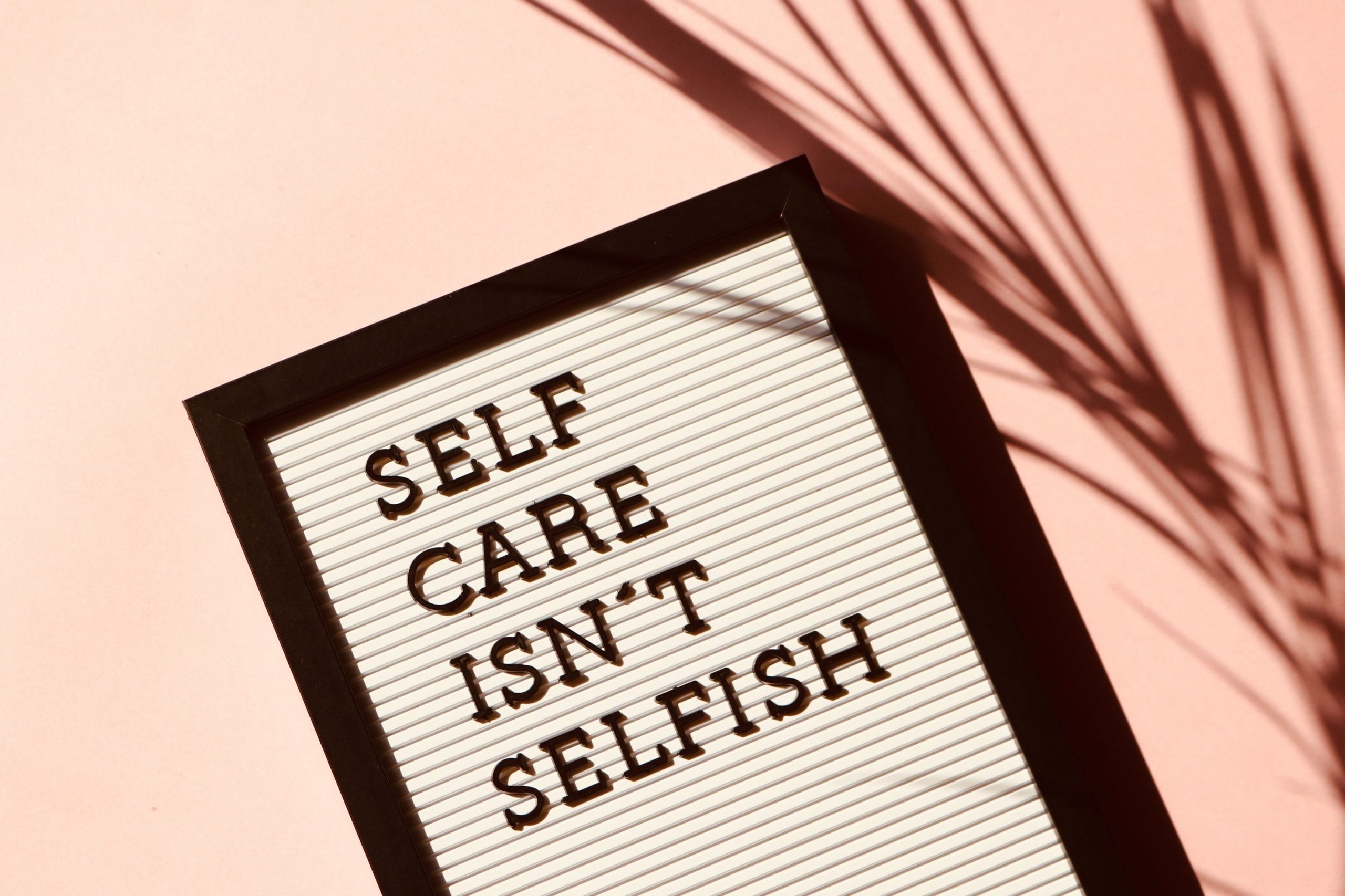When talking about self-care, we oftentimes lean towards short-term solutions that help make us feel good in the moment such as treating ourselves to a sweet treat. Others include really indulgent options such as cosying up to a glass of wine while in a bubble bath or an unrestricted day of retail therapy.
And while it’s nice to pamper yourself once in a while in the name of keeping our mental and emotional health happy, real self-care is more oftentimes, well, not so pretty. It can be as simple as getting enough sleep, or something a tad more difficult such as seeking professional help. With that said, realistic self-care isn’t always as indulgent as we wish, and here are some of the ways to really practice it when you’re not feeling your best.
Be okay with not being okay
The trickiest part about getting help is when people – while they may want the best for you – don’t meet your emotional or mental needs by promoting positivity at a time when you’re just not feeling it. But probably the most comforting thing that you can do for yourself, for starters, is to know that it is completely okay to not feel okay. If even you deny your own negative emotions, it’s easy to get wrapped up and overwhelmed in it, which makes coping all the more difficult.
Once again, with vigour, it’s okay that you’re not okay right now. Rather than burying your feelings, accept that you’re not okay, and that you have all these thoughts, feelings, and sensations. Sit with them for as long as you need to, decide your next step, and know that you have the time to one day be okay again. Even if you have to cry it out to feel just a little bit better, just do it. It’s okay.
Find comfort in “Me Time”

When it comes to “Me Time”, there are two situations: Those of us who are able to carry out our daily responsibilities but find distraction in doing more work; and those who, in a way, have too much time for themselves. For the former, it’s important to set aside time for yourself at least 30 minutes a day, or a few times each week. This is the time for you to recharge, renew, and self-reflect to ensure that your needs are met, and identify what else you actually require. It’s also one of the best times to indulge and treat yourself, whether it’s your favourite dessert or lazing to your favourite movie.
If you find you’re having too much time for yourself, then perhaps it’s time to get creative. Pick up something you’ve been curious about – such as a new hobby, or visit that café you’ve always wanted to check out. Start tidying up around the house or add charming new knick-knacks to your home. Keeping yourself occupied won’t just help you remember that there are things in life that still make you feel good, some may even give you the push you need to get organised again.
Reintroduce yourself to a routine

Whether it’s something as small as re-establishing a new skincare routine or making your bed every morning, reintroducing yourself into a routine of any kind can do wonders in boosting your mental health. When we’re feeling down and low, we often lose the day-to-day rhythms of our lives, and slowly bringing structure back can help us gain a little more control while keeping us organised. The key is to start small and take your time.
Eat your meals at set times every day, wash the dishes right after eating, or put aside 10 minutes every evening to take a walk outside. Eventually, you’ll be able to rediscover your focus and feel more confident during the day. Just don’t be afraid to switch it up if you get bored, and tell yourself that’s completely okay if you stumble the first few times.
Take a walk
It’s definitely not easy to ask someone who’s depressed or feeling depressed to just adopt a new exercise routine and get those endorphins running. On the other hand, lying around the house may actually increase your stress levels and even be detrimental to your physical health. Try sparing 10-15 minutes a day to walking, preferably outdoors to get some fresh air if you can, but just moving around the house can help increase your energy while improving mental clarity and help reduce stress. Over time, you’ll be able to be more ambitious and dedicate those minutes to some light exercise, and eventually reach your current fitness goals.
Reach out in stages
If you feel like you aren’t able to figure things out by yourself, then it’s time to start reaching out. And while many aren’t necessary comfortable with seeking help, there are baby steps one can take as a way of preparation. Start by tapping into the inner workings of your mind by journalling or meditating – whichever works best for you. It’s also important that the people you reach out to are those you trust and can help you feel like you’re in a safe space, such as a trusted loved one, parent, and relative, or a trained professional. And if you have a pet – you can try just chatting with them too in the beginning.
Eat healthier

Feeling anxious or depressed can oftentimes lead us to under-eating because we may associate happy memories with food – or overeating to compensate that feeling of “emptiness” that we feel inside. However, these eating habits can irritate your gastrointenstinal system, which can actually negatively impact your mood. That’s why eating mindfully and having a healthy gut can actually have a significant impact on not just your body – but also your wellbeing.
Limit your intake of sugar and processed foods, and swap them out for equally satisfying treats such as berries or dried fruit. If you’re constantly overeating in general, try keeping a food diary to practice mindfulness when eating. Your diet should also be diverse – consisting of vegetables, grains, and even fermented foods which can help improve digestion. The vitamins and antioxidants in fruits and leafy greens can also aid in reducing inflammation in the body, which in turn can help improve your mental health.
Sleep in if you must, but sleep well too
Don’t beat yourself up if you find yourself sleeping in more than usual during trying times, but at the same time, know that getting enough sleep at the right time is one of the best things you can do for yourself right now. Without sufficient sleep or with too much sleep, our hormones are thrown off balance, we stress out and get irritable much easier – and we end up getting stuck in a vicious cycle.
Ease yourself back into a healthy sleeping routine by going into bed 10-15 minutes earlier than you usually do. In the meantime, practice good sleep hygiene such as avoiding heavy meals and limiting screen time before bed. Keep adding those 10-15 minutes each week until you’ve reached your sleep need goal, and aim for at least 7-9 hours of good quality rest.










